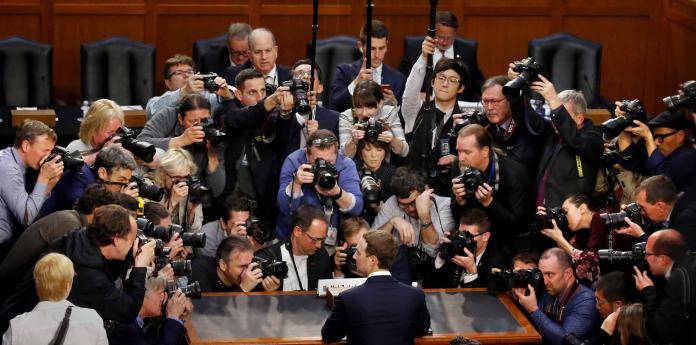
If you think that the furor over Facebook’s privacy practices is over since they have tried to make amends by being open and by starting an information campaign about what user privacy, then you probably still believe in unicorns and rainbows and all that. They have opened a proverbial can of worms and the US government in particular is taking a closer look at the company and its practices, examining closely if they are actually violating one or several policies when it comes to protecting the privacy of the general public. The latest issue involves an even trickier player into the mix: Chinese companies. Here are some things you should know about this latest problem.
Facebook has data-sharing partnerships with at least 60 device makers
Back when Facebook apps still weren’t widely available on smartphones, the company struck deals with almost all the major device makers in the world. This includes Apple, Amazon, Blackberry, Microsoft, Samsung, etc. Basically, it let these OEMs offer popular features of the social network like messaging, “like” buttons, adding address books, therefore allowing Facebook to expand its reach. In return, the companies had access the data of not just the users but the users’ friends and their data, without any of the parties’ explicit consent. Facebook sees this device makers as partners and not third-party outsiders, thereby giving them almost unfettered access to their billions of users. Some of those partnerships are still live, although the company admits that they have started winding them down since the whole Cambridge Analytica issue.
And those device makers include a prominent Chinese brand
As if that isn’t problematic enough, the companies that they have partnership agreements with include at least four Chinese companies, and one of them has already been flagged by US intelligence groups as a danger to the country. Yes, we’re talking about Huawei. The other three are Lenovo, Oppo, and TCL. But back to Huawei, as this particular agreement may be another major headache for Facebook. While they have not given the nitty gritty details of these partnerships, it is similar to what they had with Blackberry, the only one that they have detailed so far. Huawei had the ability to retrieve information about religious and political leanings, work and education history, and relationship status. Facebook said however that the data stayed on the phones and not the company’s servers. But you can see how US intelligence groups can see this as very problematic.
US Congress really wants those details
Even though Facebook says the Huawei deal is ending by this week and the partnerships with other device makers are winding down as well, the US Congress is still demanding that Facebook provide them with the details of all those data partnerships. Senator Mark Warner of Virginia pointed out that the Huawei threat isn’t something new and went as far back as 2012, so he is “looking forward” to seeing how Facebook guarantees that the information obtained by Huawei was never sent to Chinese servers. Senator John Thune of South Dakota says, “Facebook is learning hard lessons that meaningful transparency is a high standard to meet.” The Republican senator is also part of the Commerce committee that oversees the FTC who is currently investigating Facebook’s data policies and whether it violated a 2011 consent decree.
Facebook may have given up on the Chinese market
As we all know, Facebook has been banned in China since 2009 and that has been a source of frustration for the company, since the Chinese market is one of the biggest globally. They have tried to re-establish itself there through unconventional means, like creating a different app, a photo-sharing replica of its Moments app and by Mark Zuckerberg trying to get into the good graces of the Chinese president. But earlier this year, an executive whose sole purpose is to court the government left China after three years of a failed charm attack. With this issue with Huawei, things will get even more complicated as China considers the OEM a “vanguard” in their plan to expand their influence globally.
SOURCE: New York Times (1) (2)









